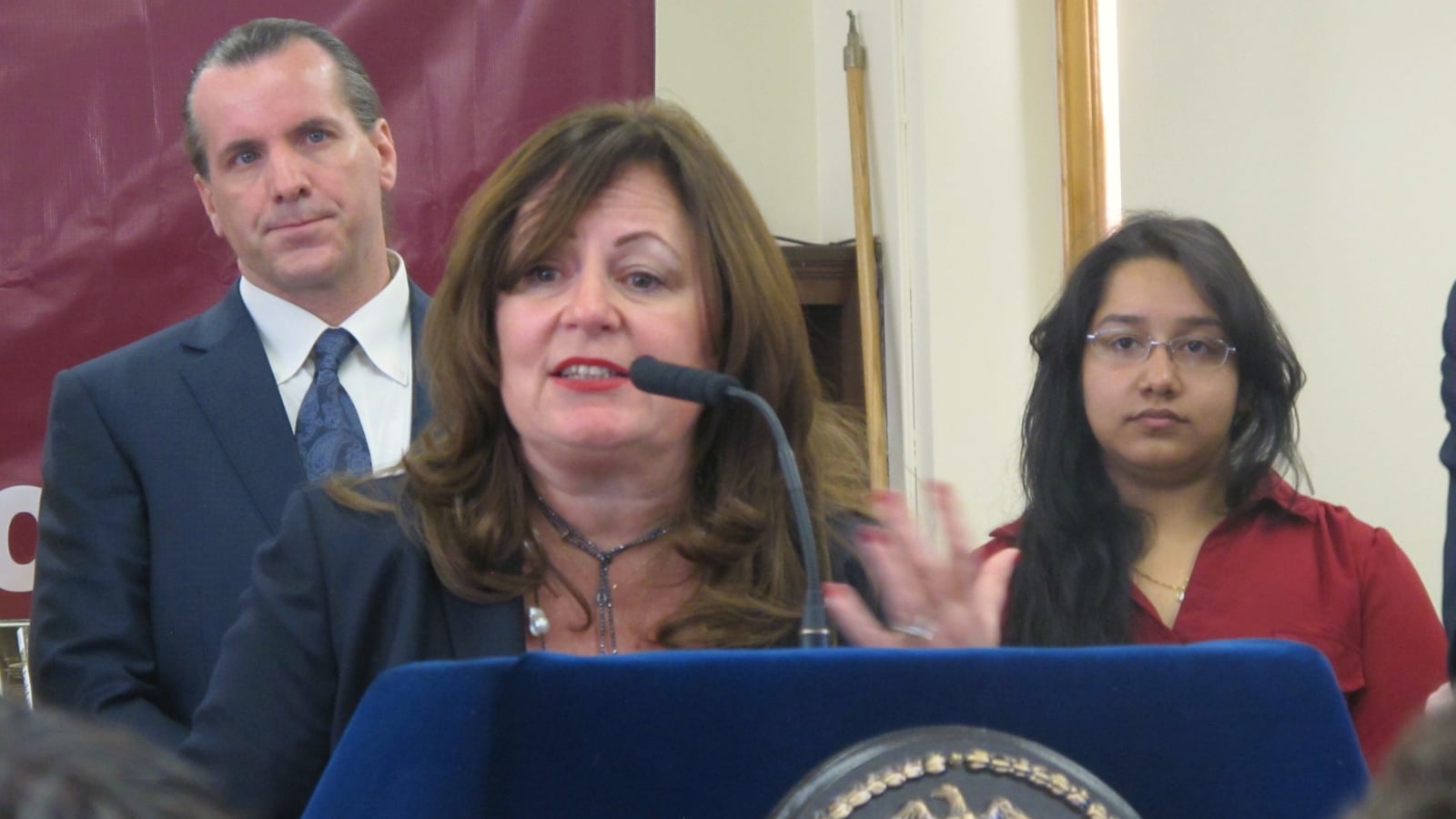The de Blasio administration’s flagship effort to improve struggling schools is losing its founding leader.
Aimee Horowitz, superintendent of the Renewal turnaround program, has taken a new role in the education department — leading an initiative to support schools that share the same buildings. That program is a pet project of outgoing Chancellor Carmen Fariña, who said Monday she will stay involved with it even after retiring.
The move means that incoming chancellor Richard Carranza will get to choose a permanent leader for the three-year-old Renewal program, according to department officials. The $582 million effort has given struggling schools additional social services and academic support.
The shakeup, which Deputy Chancellor Dorita Gibson announced in an internal email Tuesday, comes just days after City Council members pressed education officials to continue investing in struggling schools. It also comes a day after Mayor Bill de Blasio chose Carranza, who helped build a similar program in Houston, to lead the city’s schools.
“We will work with incoming Chancellor Richard Carranza to ensure we have the right leadership in place to support our most struggling schools across the city – aligned under the Office of Field Support,” Gibson said in the email.
That office works with schools across the city that have widely varying needs. Until the Renewal program gets a permanent leader, its 50 remaining schools — and 21 “Rise” schools that are slowly graduating from the school improvement program — will be overseen by Cheryl Watson-Harris.
Watson-Harris, the field support office’s leader who will also oversee the Renewal program on an interim basis, recently testified at a City Council hearing about the Renewal program’s progress. She has been involved with Renewal schools over the last year, according to the email.
Horowitz’s departure comes after a tumultuous three years for the program. Launched in 2014, de Blasio initially said the program would stoke “fast and intense improvements” in some of the city’s lowest-performing schools. But more than three years later — and with the program’s long-term future uncertain — the effort has produced decidedly mixed results.

